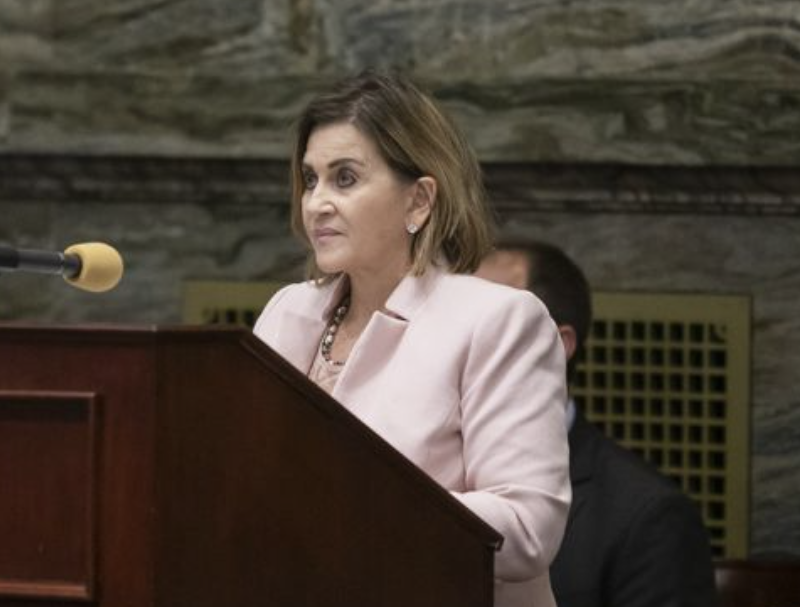In Wake of Trump Guilty Verdict, DelVal Opinions Vary

“If they can do this to me, they can do this to anyone,” former President Donald Trump told reporters in the lobby of Trump Tower in New York the day after being convicted of 34 felony counts of falsifying business records.
It’s a message he has repeated since then, dismissing the trial as a “scam” during an appearance on Fox and Friends Weekend on Sunday, predicting the verdict will rally his support on the right.
He blamed President Joe Biden and his administration, along with Manhattan District Attorney Alvin Bragg and Judge Juan Merchan, for the trial and verdict.
“People get it. It’s a scam. And the Republican Party, they’ve stuck. They stick together in this. They see that it’s the weaponization of the Justice Department, of the FBI and that’s [it’s] all coming out of Washington.”
Trump, who is set to be sentenced July 11 — just four days before the Republican National Convention — said he will appeal.
And what are people in the Delaware Valley saying?
Responding on Facebook, DVJournal reader Bill Watkins put it succinctly: “Vote Trump.”
“Good. Our judicial system, the foundation of a nation of laws, worked,” was the response of Rich Heiland.
Muhlenberg College political science Professor Christopher Borick offered a more analytical view.
“The very tight presidential race in the commonwealth is creating a bit of gravitational pull on the down-ballot races, making it a challenge for down-ballot Republicans and Democrats to escape the performance of Trump and Biden,” Borick said.
“If the guilty verdict does nudge a relatively small slice of voters away from Trump as polling suggest it might, it can place some weight onto down-ballot Republicans who have been modestly lifted by Trump’s fairly good showing in recent polls All of this is among a small group of voters, but in a place like Pennsylvania, and in the state’s most competitive districts [for example, the 7th, 8th and 10th] all the little things matter,” added Borick.
Also, on Facebook, Skippack resident Debbie Jr. “D.J.” McGinley said, “I was independent. I always voted Democrat until this election. I changed my party to Republican because of the nonsense. I will vote for Trump no matter what.”
Carole Anne said, “I’m ultra, ultra MAGA now.”
Newtown resident Fred D’Ascenzo said he is “very upset.”
“I am deeply upset by the verdict, beyond mad and very concerned about the future of this country,” said D’Azcenzo. “I would not want to see any president experience this no matter the party. It does have the appearance of a political hit on Trump. In my opinion, this was a directed verdict by a partisan judge and a politically motivated DA, who stated in his campaign, that he was going after Trump. Can’t make it up.
“I see and hear people praising and celebrating the verdict. We are in trouble. This will divide the country even further,” he added.
“I think it will change people’s minds and alliances on both sides,” said D’Azcenzo. He is “not sure what the outcome will be. There will be people that will say, ‘I am not voting for a convicted felon,’ and there will be people that are so upset that they will change their vote possibly to vote for someone they feel was unjustly vilified.”
Cheltenham resident Myron Goldman said, “I think the Trump trial confirms the corruption of the Justice Department by the Biden administration. I think it’s horrible.”
Congresswoman Madeleine Dean (D-Pa.) said on X, “Today marks the first time a former president has been convicted of a crime — in this case 34 felonies. I’m not happy about the crimes, the corruption, or the convictions — yet I am joyful for our democracy. Because no one is above the law. We are a system of laws, not of men.”
Interestingly, Bucks County U.S. Rep. Brian Fitzpatrick and his fellow moderate Republican Rep. Tom Kean Jr. across the river in New Jersey have had no comment.
Senate President Pro Tempore Kim Ward (R-Westmoreland) said, “It will be up to former President Trump to appeal to a higher court or accept the verdict and pay the penalty just as any other person facing a trial of their peers. The path forward seems obvious and the likelihood the upper court would overturn the lower court’s decision on merit is strong.
“The guilty verdict on all counts by the jury raises red flags, making this seem more like a persecution than a prosecution. It should be a wake-up call for Pennsylvanians that the rule of law and the permanency of our republic is at stake and no individual is immune to the consequences of a judicial system influenced by activism,” said Ward.
Republican Scott Presler, a voter registration activist who often visits the state, sees post-verdict opportunity for the GOP in the Keystone State.
“After seeing what happened yesterday, buying a home in Pennsylvania was the best decision I ever made,” said Presler on X Friday. “I’m moving to Pennsylvania just to vote for President Trump. That’s the best investment I could ever make. If you live in Alabama, Mississippi, Tennessee, or another red state, move to Pennsylvania and help save the world.”
Please follow DVJournal on social media: Twitter@DVJournal or Facebook.com/DelawareValleyJournal






